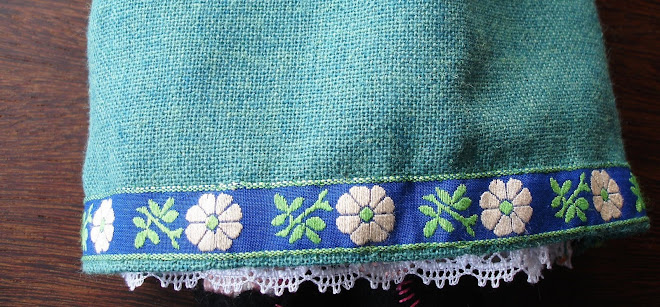
Capucha
 stitching on a Capucha
stitching on a Capucha

Imagens tiradas de
Artes e Tradições de Viseu, Direcção-Geral da
Divulgação,1982. Terra Livre.
Nos finais dos anos 1970´s e princípios dos 80´s, a Direcçaõ-Geral da Divulgação e o Ensino Básico via Centros de Formação de Professores de varias cidades colaboraram para publicar um levantamento de artesenato e património cultural da sua propria região. Este de Viseu veio ter as minhas mãos (lovely Luís) este fim de semana e tem sido a minha leitura últimamente.
Dream: I would like in my next life to come back as an ethnographer, preferably in the Portugal of the 1950´s or maybe even a bit further back to the early 1900's (if it is not too much to ask). I would love to take off and drive around the country to remote places and find craftspeople and ask them how do they make this piece, what is the process, and where did you learn how to do it?
I would record it all and put it in a big book with drawings and pictures and transcribe the actual conversations I had with them. »»»AWAKE««««««
The strength of this book is just that. Conversations tape recorded and then transcribed with the spelling out of the pronunciation of the person talking gives you a sense of how the artisan commununicated, after all, also an important part of cultural identity. But first one had to gain the trust of those whom one wanted to converse with which was not always an easy task.
Above, I highlighted the section of the capucha , a covering used throughout Portugal for protection from the elements. Handmade from artesenal wool and decorated with stitching which varied from village to village and tailor to tailor, the capucha was a vital piece of pastoral and rural costume.
an excerpt:
Continuando caminho, estrada fora, tentei encontrar Ester. É uma povoação onde nem um veículo motorizado poderia passar. Para se lá chegar tem que se subir, a pé, um pouco da encosta da serra, primeiro por umas escadas artificiais, depois por umas naturais na própria pedra à custa de tanto se passar lá. Por fim, quando cheguei ao cimo, deparei com imensas casas em cima umas das outras, feitas exclusivamente de pedra e sem o mínimo de condições. As estradas, também feitas de pedra, com alturas diferentes, não devem ter mais de um metro de largura.
As pessoas olhavam para mim desconfiadas. Tentei dialogar com elas; umas sem me responderem, corriam para suas casas e fechavam-se lá dentro, outras cochichavam entre si e depois diziam-me que não usavam capuchas, fechando-me a seguir a porta na cara. Por fim, quando já desanimada voltava para trás, resolvi tentar mais uma vez a minha sorte, indo bater à porta do alfaiate da terra; fui relativamente bem recebida para espanto meu e mostraram-me uma capucha primorosamente feita, cujo desenho do pesponto, bastante curioso, se mostra na página anterior.
»»»A propósito, não quero perder Galerias da Vida Rural (Alentejo).
 Setúbal, April 2007
Setúbal, April 2007























